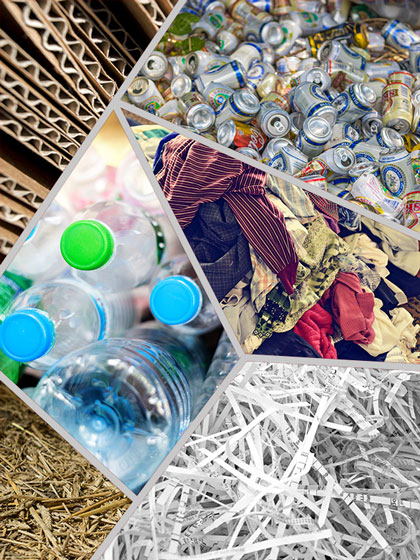
In the world of recycling, particularly when dealing with plastics, the choice of recycling baler can significantly impact the efficiency and effectiveness of your operations. As a professional in the field, I understand that selecting the right type of plastic baler is crucial for any recycling business. This article will explore the various types of plastic balers available, helping you make an informed decision for your recycling needs.
1. Vertical Balers
Vertical balers are the most common type found in small to medium-sized businesses. They are named for the vertical direction in which they compress material. These balers are ideal for facilities with limited space as they have a smaller footprint. Vertical balers are typically used for baling materials like PET bottles, plastic containers, and plastic films.
Advantages:
- Space-saving design.
- Lower initial investment.
- User-friendly and easy to maintain.
2. Horizontal Balers
Horizontal balers are more suited for larger operations that handle high volumes of recyclable materials. They can process more material at a faster rate compared to vertical balers. Horizontal balers are best for continuous or high-volume baling and are often automated, which reduces the need for manual labor.
Advantages:
- High efficiency and throughput.
- Better for large-scale operations.
- Can be automated for continuous operation.
3. Two-Ram Balers
Two-ram balers are a subtype of horizontal balers. They are equipped with two rams (hence the name), with one ram compressing the material and the other ejecting the finished bale. These balers are highly versatile and can handle a variety of materials, including different types of plastics, without requiring material changes or adjustments.
Advantages:
- Versatility in handling multiple materials.
- High compaction force, producing denser bales.
- Less pre-processing of materials required.
4. Auto-Tie Balers
Auto-tie balers are advanced horizontal balers that automatically tie the bales with wire, reducing manual labor. They are ideal for operations that require quick and efficient processing of large amounts of recyclable plastics. Auto-tie balers are commonly used in large recycling facilities and manufacturing plants.
Advantages:
- Reduced labor costs due to automatic tying.
- High-speed operation.
- Ideal for high-volume recycling.
5. Closed-end Horizontal Balers
If your material volume is high but not require a very high-speed operation, this closed-end baler would be a good choice, and it will not cost you as much as other horizontal balers. It produces denser and uniform bales just like bricks, let your plastic bales much securer during handling and transportation.
Advantages:
- Cost-effective for high volume plastic processing.
- Produce denser bales.
- Versatile for various plastic types.
6. Bale Breakers
While not technically balers, bale breakers are an important part of the recycling process, especially in facilities that receive pre-baled materials. They are used to break apart compressed bales so that the materials can be sorted and processed further. This equipment is essential for facilities that deal with mixed bales.
Advantages:
- Allows for efficient sorting of pre-baled materials.
- Essential for facilities accepting baled recyclables.
- Improves overall processing efficiency.
7. Channel Balers
Channel balers are another variety of horizontal baler, featuring a channel for bale formation. They are designed for medium to high volumes of waste and are particularly effective for baling plastics due to their high compaction force. They often come with automatic tying systems.
Advantages:
- Suitable for medium to high volumes of material.
- High compaction force for dense bales.
- Often equipped with automatic tying systems.
Choosing the Right Plastic Baler for Your Operation
Choosing the right plastic baler depends on various factors, including the volume of material processed, the types of plastics being recycled, space considerations, and budget constraints. By understanding the different types of plastic balers and their respective advantages, businesses in the recycling industry can optimize their operations for maximum efficiency and profitability.
Remember, investing in the right baler is not just about improving your bottom line; it's also about contributing to a more sustainable and environmentally friendly future. Choose a baler that aligns with your operational needs and environmental goals, and you'll be well on your way to success in the recycling industry.
If you are looking for a plastic baler for your recycling business, feel free to reach out for personalized recommendations for your recycling needs.
